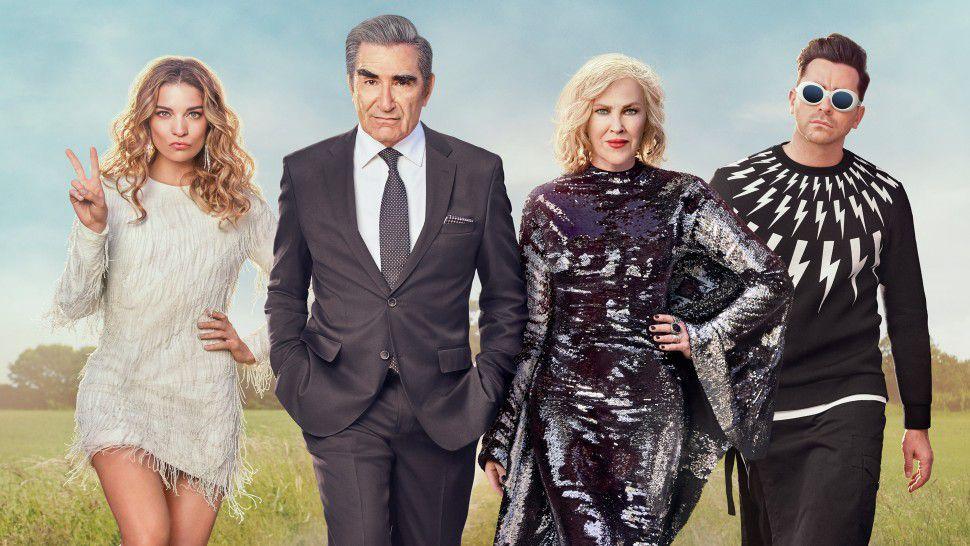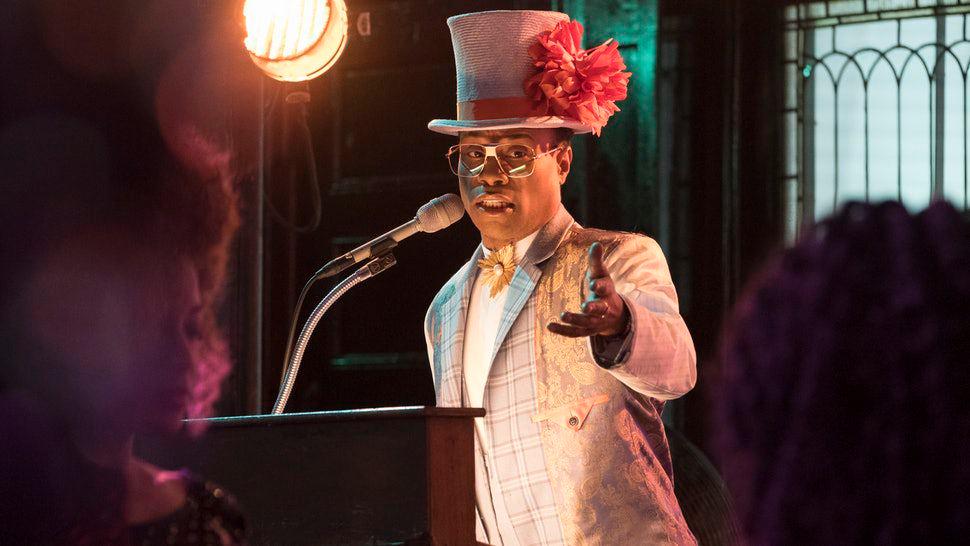Tuesday morning, the Television Academy announced the nominees for the 71st Emmy Awards. We’ve never been at a more confusing time in the history of the medium, which means the nominations themselves can’t help but be a mess of snubs, surprises, inertia, and breakthroughs. We’ll likely be picking through the trivia until the ceremony itself in late September, but for now, here are the quick winners and losers of a dizzying batch of honorees.
Winner: Game of Thrones
It was probably a fool’s errand to expect Game of Thrones to lose any Emmys momentum after its eighth and final season—even though the season was the series’ most heavily scrutinized installment. But when the Emmys start to favor a show, they tend to stick with it as long as it’s eligible. Before Tuesday’s announcement, Thrones already held the record for nominations by a single show with a ridiculous 128.
Well, it’s time to add 32 more nominations to that record-setting total. If 32 sounds like a lot, that’s because it is: No TV show has garnered more Emmy nominations in a single year. Granted, some of these were to be expected—of course Thrones would get a Best Drama Series nod—but it’s the surplus of nominations in other categories that affirms the show’s dominance. In the Supporting Actress–Drama race alone, Thrones was responsible for four of the six nominees, thanks to the presence of Gwendoline Christie, Lena Headey, Sophie Turner, and Maisie Williams. And remember when Carice van Houten showed up for, like, a minute during “The Long Night” to burn some torches to aid the troops/viewers at home who didn’t adjust the brightness on their TV screens? Apparently that was enough to earn a Guest Actress nomination—such is the power of Thrones. After this year, it’ll be interesting to see which dramas the Emmys favor. But for the time being, the series still sits atop an Iron Throne that Drogon has yet to melt for symbolic purposes. —Miles Surrey

Winner: The Power of Netflix
Schitt’s Creek is not, technically, a Netflix original. The Canadian sitcom is aired stateside on Pop TV, a little-known network under the auspices of the CBS Corporation. But the show is known to most viewers, and doubtless most Academy members, as one of Netflix’s highly bingeable acquisitions. And unlike The Office or Friends, Schitt’s is still on the air, meaning its Netflix boost can be felt in awards recognition as well as cultural footprint. In its fifth and penultimate season, Schitt’s went from no previous nominations at all to four: for Comedy Series, Lead Actor and Actress in a Comedy, and Contemporary Costumes, no doubt on the merits of the sartorial stylings of Catherine O’Hara’s aging diva, Moira Rose.
HBO may have reclaimed its title as the network with the most nominations total—137 to Netflix’s 117—but Netflix may have displayed more impressive shows of strength overall. Turning a little-known family farce into a contender is slightly more of a flex than the way Thrones continues to benefit from being at the center of the monoculture. So is definitively winning the Fyre Fest flame war, with Netflix’s rendition of the boondoggle bringing in four nominations to Hulu’s single one. And so is the runaway success of Ava DuVernay’s Central Park Five miniseries, When They See Us, which drew attention not just for flashy names like Michael K. Williams but also newcomers like Jharrel Jerome, meriting an astonishing 16 nominations overall. (Whether a by-the-numbers Breaking Bad homage like Ozark would fare so well on another distributor is another open question.)
Thanks to Netflix’s notorious opacity, the actual boost in viewership netted by a streaming pickup may never be known. But the Netflix Effect now has at least one hard metric: awards, even for shows whose relationship with the company is more tangential than a fully homegrown production. HBO may have won this battle, but with Game of Thrones and Veep at the end of their roads, it ought to be nervous come next year. —Alison Herman
Loser: The Rules
Wait, Handmaid’s Tale wasn’t eligible this year? Then why are Bradley Whitford and Cherry Jones nominated? Carice van Houten was a guest actress on Game of Thrones? Shouldn’t Patricia Arquette be double-nominated for Lead Actress in a Limited Series, instead of being up for Supporting for her turn in The Act?
“Category fraud” is an allegation as old as awards season, but the increasing obsolescence of the TV “season” and the intensity of the competition have ratcheted Emmy gamesmanship up to new levels. Shows are eligible for some categories, but not all; overcrowded ensembles nudge key players into categories that downplay their significance. Plenty of nominations this year follow the letter of the Academy’s bylaws, but not their spirit. Best of luck to viewers trying their best to keep up. —Herman
Winner: Old-School Prestige
Last year, Netflix made waves when its Emmys nomination total surpassed HBO. And streamers in general have begun to encroach on the old-school prestige of Emmys mainstays like HBO, FX, and AMC. In the past few years alone, Hulu became the first streamer to win Best Drama Series for The Handmaid’s Tale, while Amazon Prime nabbed the first Best Comedy Series crown for The Marvelous Mrs. Maisel.
But while Netflix, in particular, had a stellar 2019 nominations slate among streamers, the old guard managed to keep shining. FX nabbed 32 nominations, 17 of which were bestowed upon the glitzy miniseries Fosse/Verdon; but more importantly, HBO took back its crown, garnering 137 nominations to Netflix’s 117. Thrones led the way, but HBO’s dominance extended to the comedy categories as well with the second season of Barry (17) and the final season of Veep (nine), and also the acclaimed miniseries Chernobyl (19, third most among shows). With a new imperative from top brass to produce even more original programming, HBO could soon be faced with the daunting task of balancing quantity with quality. But to keep up with Netflix’s impressive Emmys totals—especially now that Thrones is over—a larger volume of content might be the only solution. —Surrey
Loser: Rhea Seehorn
Even though AMC’s Better Call Saul has gotten a Best Drama Series nomination all four years it’s been eligible, the Emmys’ love hasn’t been extended to Rhea Seehorn. It seemed like this could finally be her year, not just because The Crown, Stranger Things, and The Handmaid’s Tale couldn’t butt in, but because the actress delivered her best work on the series to date.
But that’s where Thrones and its pesky noms got in the way. Four actresses from Westeros filled six slots—the other two going to Fiona Shaw for Killing Eve and Julia Garner for Ozark—leaving no room for Seehorn to snag her first nomination. This means Kim Wexler’s sublime fourth season was overlooked for OZARK and Lena Headey’s performance as a person who stands on a balcony and sips wine. HOW DOES ANY OF THIS COMPARE TO KIM WEXLER’S CONFRONTATION WITH JIMMY MCGILL IN A PARKING LOT?
Kim Wexler is, and continues to be, the best part of Better Call Saul. To quote myself from October: “Give Rhea Seehorn the Emmy nomination or so help me God.” So … HELP ME GOD! —Surrey
Winner: Phoebe Waller-Bridge
Sometimes, good things happen to those who deserve it. The volume factor of the Emmys—both the sheer number of shows eligible, and the total dominance of overwhelming favorites like Game of Thrones—threatens to drown out smaller critical favorites that may not be as widely seen as their competitors, even among the Television Academy’s in-the-know membership. And yet Fleabag, the pitch-black British comedy almost universally lauded as one of the best shows of the year, actually seems to be regarded as such in the eyes of the Academy. After receiving no nominations at all for its first volume in 2016, the belated second season received a whopping 11, including for Comedy Series, Directing, Writing, and a remarkable five acting nods. (Olivia Colman, Sian Clifford, Fiona Shaw, and Kristin Scott Thomas were all invited to the party—though not, strangely, Andrew “Hot Priest” Scott.) Two of those nominations, and ultimate credit for all of them, belong to auteur Waller-Bridge, who both conceived of and embodied Fleabag’s title character.
Nor was Fleabag’s success the only victory for its creator-star. Killing Eve was a surprise breakthrough last year, taking advantage of Game of Thrones’ absence and Sandra Oh’s near-universal approval rating to snag Writing and Lead Actress nods in the Drama category. Even with Thrones’ return and a somewhat dimmed critical reception, the espionage thriller’s second season managed to improve on that performance, adding nominations for cast members Jodie Comer and Fiona Shaw as well as the show itself. Killing Eve’s total yield went from two nominations to 11 in a single year, instantly elevating the show from a pleasant anomaly to a serious contender. With 22 nods total, Killing Eve and Fleabag have proved that their creator’s signature wit has devotees among entertainment’s establishment as well as its artsier fringe. The Phoebe Waller-Bridge Extended Universe is quite the place to be. —Herman

Winner: Billy Porter
It’s a little disappointing that the show setting the record for the most regular cast members who are trans in a scripted series didn’t net an acting nomination for any of said cast members. But Pose fans can rejoice in the recognition of Billy Porter, newly minted Lead Actor nominee fresh off wiping the pink carpet at the Met Gala. (Pose also earned Series, Casting, Period Costumes, Makeup, and Hairstyling nods.) Porter’s performance as the exuberant ball MC Pray Tell is the heart of FX’s joyful, sentimental show, Ryan Murphy’s last hurrah at the network before he packed up shop for Netflix. A fashion star off camera, Porter shines on it, making his nomination a richly deserved crowning achievement for a performer with decades of experience. —Herman
Loser: Defending Champions
Because the Emmys follow familiar patterns in its nominations—see: Thrones’ dominance, but also the Television Academy’s infamously unhealthy obsession with Modern Family—the only way to spruce up the major categories is for mainstays to completely avoid eligibility. That’s what happened this year, thanks to major players in the drama category—The Crown, Westworld, Stranger Things, and The Handmaid’s Tale—skipping the party until 2020. (A quick reminder that this year’s Emmys eligibility period runs from June 1, 2018, to May 31, 2019, which is why the new seasons of Stranger Things and The Handmaid’s Tale narrowly missed the cutoff, and why a buzzy series like Euphoria will have to wait until next year.)
It’s possible that certain dramas’ missing the cutoff came down to production schedules and other behind-the-scenes machinations—Stranger Things’ third season did take place over the Fourth of July, leading Netflix to release the episodes on that date as a marketing ploy—but it’s hard not to consider some of these as more strategic moves. (Seriously, is the third season of The Crown locked in a vault under Ted Sarandos’s desk?!) As much as last year’s Emmys were about capitalizing on the absence of Thrones, this year’s seems to be about skipping a potential showdown. Thanks to those no-shows, though, the drama category welcomed newcomers in Bodyguard, Pose, and Succession—all for their first seasons—proving that a defending nomination champ’s loss is always another show’s gain. —Surrey
Disclosure: HBO is an initial investor in The Ringer.
